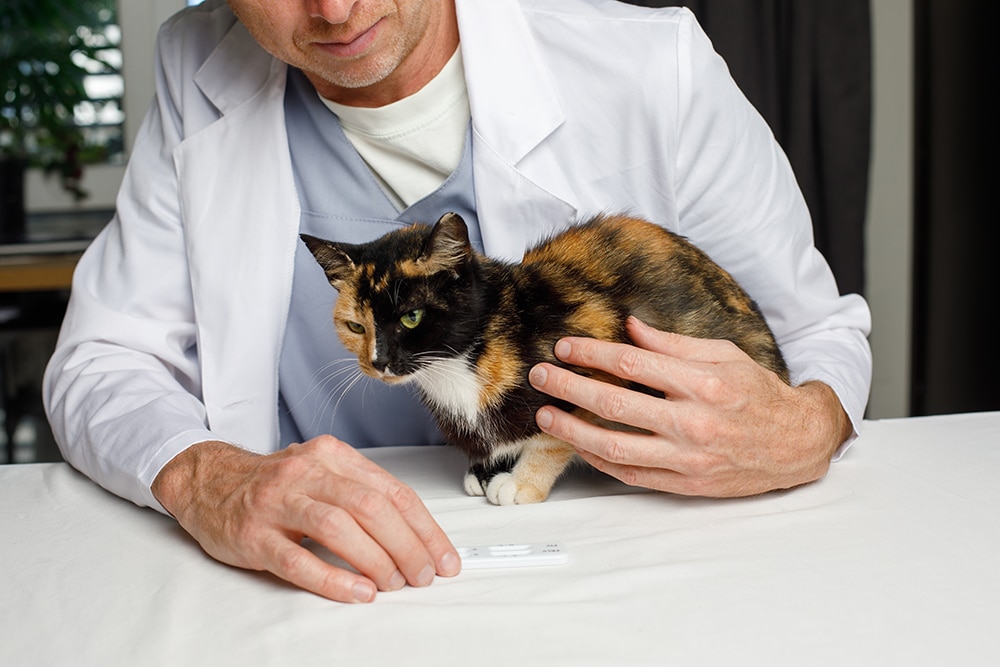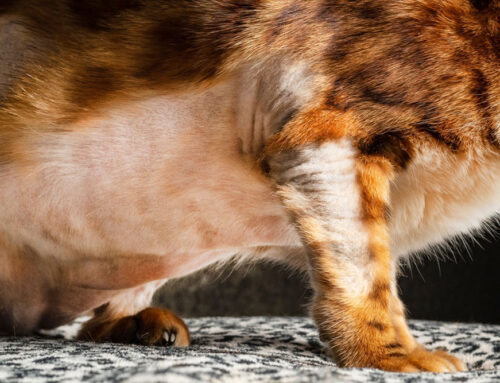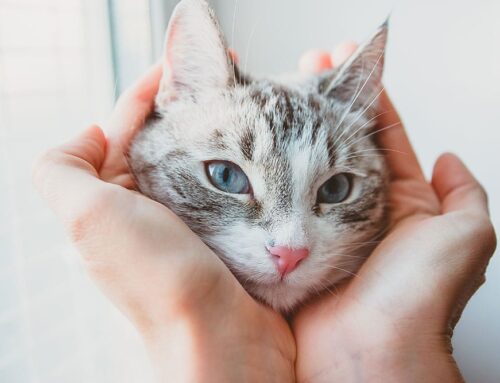Feline Immunodeficiency Virus (FIV): What Cat Parents Should Know
What Is FIV? A Clear Overview
Feline Immunodeficiency Virus (FIV) is a slow-acting retrovirus that affects a cat’s immune system over time, similar to how HIV impacts humans. Although sometimes referred to as “feline AIDS,” it’s important to emphasize that FIV cannot be transmitted to people or other non-feline animals.
Despite the fear the term may evoke, FIV is manageable, and many cats live long, comfortable lives with the virus—especially with early diagnosis and appropriate care.
Just Cats Clinic: Experts in FIV and Lifelong Feline Wellness
Located in Reston, Virginia, Just Cats Clinic is a feline-only veterinary practice that provides expert-level care in a calm, low-stress environment tailored specifically for cats. As a certified Cat Friendly Practice and proud AAHA-accredited hospital, our team is dedicated to the highest standards of feline medicine. We offer comprehensive diagnostics, customized treatment plans, and proactive, lifelong wellness care for cats of all ages and conditions—including those diagnosed with Feline Immunodeficiency Virus (FIV).
At Just Cats Clinic, we’re passionate about helping cats with FIV live long, comfortable, and enriched lives through careful monitoring, early intervention, and compassionate support. If your cat requires urgent evaluation or is showing concerning symptoms, our Urgent Cat Care services ensure timely, specialized attention when it matters most.
Understanding FIV: How It Works in the Body
FIV is a lentivirus, meaning it causes lifelong infection and progressively weakens the immune system. Infected cats become more vulnerable to infections, dental disease, and other inflammatory or immune-related conditions. However, many FIV-positive cats live for years without severe symptoms—especially when their health is well managed.
FIV vs. FeLV: Know the Difference
Although both FIV and feline leukemia virus (FeLV) are retroviruses that affect the immune system, they are distinct in how they spread and behave:
| Feature | FIV | FeLV |
|---|---|---|
| Transmission | Deep bite wounds | Saliva, urine, grooming |
| Common in | Outdoor male cats | Young or immune-compromised cats |
| Spread through casual contact? | No | Yes |
| Disease course | Slow progression | Can cause rapid decline |
Learn more about myths and facts here: Feline AIDS and Your Cat – Embrace Pet Insurance
How FIV Is Transmitted
Main Method: Bite Wounds
FIV is primarily spread through deep bite wounds, often during territorial fights. This makes intact, outdoor male cats most at risk.
Other Transmission Routes (Less Common)
- Rarely from mother to kitten during birth or nursing
- Very infrequently through sexual contact or blood transfusions
FIV is not spread through grooming, shared food bowls, litter boxes, or casual contact—this is a common and damaging myth.
Symptoms of FIV: What to Watch For
Early Stage (Acute Phase)
- Mild fever
- Swollen lymph nodes
- Occasional lethargy or reduced appetite
These signs are often subtle or missed entirely.
Latent Stage (Asymptomatic)
- May last for years
- No visible symptoms, but virus continues to affect immune function
Chronic or Advanced Stage
- Weight loss and poor coat quality
- Gingivitis, stomatitis, or severe dental disease
- Recurring infections (e.g., skin, eyes, respiratory)
- Diarrhea or chronic GI upset
- Increased risk of certain cancers or kidney disease
Diagnosing FIV
Standard Testing
- ELISA (enzyme-linked immunosorbent assay): Screens for FIV antibodies
- Western blot or IFA: Confirms positive results
Kittens born to FIV-positive mothers may test positive for months due to maternal antibodies—retesting after 6 months is advised.
Why Timing Matters
During the “window period,” a cat may be infected but still test negative. Regular testing is important, especially in high-risk cats.
Managing FIV: Living Well With the Virus
While there is no cure for FIV, it is highly manageable with proactive veterinary care and at-home support.
Key Strategies
- Keep your cat indoors only to avoid exposure to pathogens and prevent spreading FIV to other cats.
- Feed a high-quality, balanced diet to support immune function.
- Maintain a low-stress, enriched environment to minimize flare-ups of chronic conditions.
- Prioritize dental care—FIV cats are more prone to painful dental disease.
- Schedule regular wellness visits and lab work to detect early signs of trouble.
- Treat secondary infections quickly and thoroughly.
Can FIV-Positive Cats Live With Other Cats?
In multi-cat households with stable, non-aggressive relationships, FIV-positive cats can often live safely with FIV-negative companions, as long as there is no fighting or biting.
Our veterinarians can help assess your household and provide guidance based on your cats’ individual temperaments and history.
When to Seek Veterinary Care
Prompt medical attention is especially important for FIV-positive cats. Call your vet if your cat experiences:
- Sudden weight loss
- Difficulty breathing or persistent coughing
- Loss of appetite for more than 24 hours
- Diarrhea lasting more than two days
- Oral pain, drooling, or bad breath
- Lethargy or behavior changes

Dispelling the Stigma
FIV-positive cats are often overlooked in shelters and adoption centers due to outdated information or fear of the virus. The reality is that these cats can live long, happy lives and deserve loving homes.
By spreading awareness and accurate education, we can help destigmatize FIV and ensure more cats find the care—and homes—they need.
Your FIV-Positive Cat Can Thrive
Feline Immunodeficiency Virus is not a death sentence. With good nutrition, regular veterinary visits, a stress-free indoor life, and prompt treatment of any secondary issues, your FIV-positive cat can enjoy many happy, healthy years.
If you have concerns about your cat’s health or are managing a new FIV diagnosis, the team at Just Cats Clinic is here to help. With a deep understanding of feline-specific medicine, we’ll partner with you to create a care plan tailored to your cat’s needs.
Contact Just Cats Clinic to schedule an appointment or learn more about our feline-focused services.













